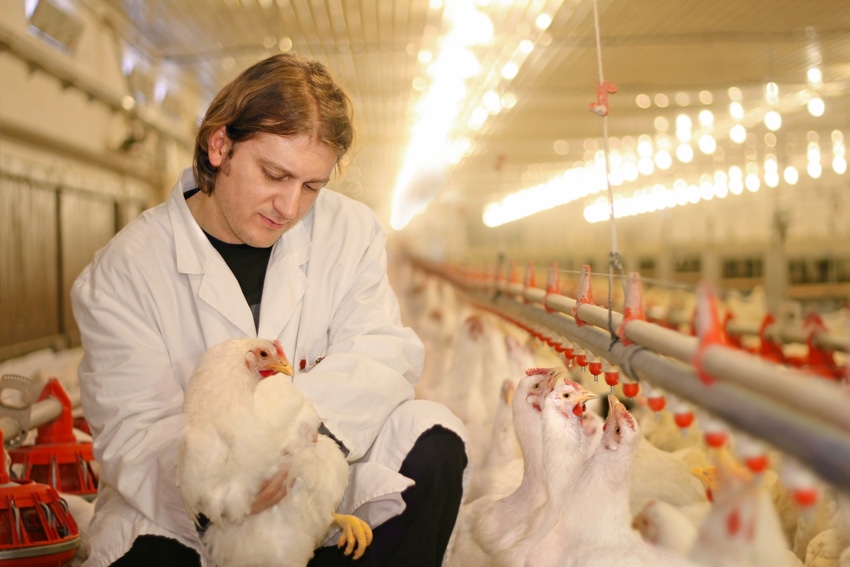Federal funds help address veterinary shortages
VMLRP awarded $7.1 million to 74 veterinarians in shortage areas.

The U.S. Department of Agriculture’s National Institute of Food & Agriculture (NIFA) is distributing $10 million to address shortages in food supply veterinary medicine through two programs: the Veterinary Medicine Loan Repayment Program (VMLRP) and the Veterinary Services Grant Program (VSGP).
VMLRP awarded $7.1 million to 74 food animal and public health veterinarians working in designated shortage areas; they will receive educational loan assistance in exchange for a three-year service commitment to practice in a USDA-designated veterinary shortage area. VMLRP helps protect animal agriculture and public health in rural communities by ensuring adequate access to veterinary services.
The program incentivizes veterinarians to practice in rural communities where their services are desperately needed. This year's awardees will fill shortage areas in 30 jurisdictions (e.g., states or territories) -- the most in the nine-year history of the program. The National Veterinary Medicine Service Act helps qualified veterinarians offset up to $75,000 of the debt incurred in pursuit of their veterinary medicine degrees in return for three years of service in certain high-priority areas.
VSGP granted $2.5 million in to qualified entities (e.g., academic institutions and veterinary practices) to support activities and programs to relieve veterinary shortage situations. Veterinarians are critical to America’s food safety and security as well as to the health and well-being of both animals and humans.
“Ranchers and farmers depend on veterinarians to keep their animals healthy,” American Veterinary Medical Assn. (AVMA) president Dr. John de Jong said. “Access to veterinary care in rural areas is critical because animal diseases have a direct impact on local economies and public health. The VMLRP is one of the best tools available to help address veterinary shortages, and we’re grateful Congress recognized its importance by providing a $1.5 million increase in funding for the program this year.”
In total, this year’s VMLRP awards will fill 74 shortages across the country. VMLRP has become more important to agricultural communities as veterinary student debt now exceeds $140,000 on average, or more than $167,000 for veterinary students who graduate with debt. Rural salaries are often lower than urban veterinary salaries, which can make food animal and public health careers cost prohibitive for many veterinarians.
“Our local veterinarian owned the only large-animal clinic in town and was desperate to retire, but he couldn’t find a younger veterinarian to take his place,” said Dr. Kaki Nicotre, a 2015 VMLRP award recipient based in Clifton, Texas. “The Veterinary Medicine Loan Repayment Program made it possible for me to take over his practice and continue caring for the community’s livestock and pets. Now, I’ve settled down in Clifton, and I’m looking forward to treating local animals for years to come.”
Since the program’s inception in 2010, VMLRP has helped place veterinarians in more than 415 federally designated shortage areas across 45 states. Despite the program’s success, 113 shortage areas remain unfilled this year.
In order to fill these areas of need and expand the VMLRP’s effectiveness and reach, AVMA is asking Congress to pass the VMLRP Enhancement Act, which would lift a 39% income withholding tax on the program’s awards. By ending this tax, which is covered by USDA, Congress could effectively expand the program’s reach without needing additional funding.
Now that 2018 awards have been made, NIFA is working with state veterinarians to identify further shortage areas and access needs for 2019.
About the Author(s)
You May Also Like



.png?width=300&auto=webp&quality=80&disable=upscale)

